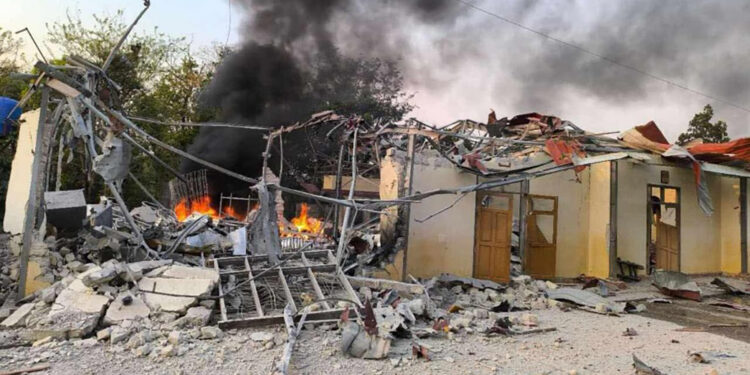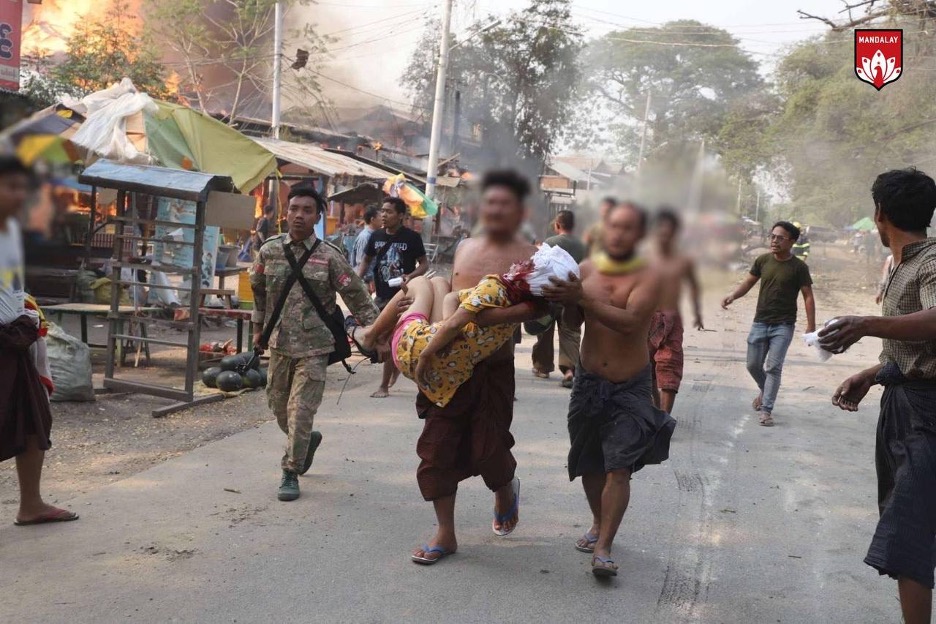The Irrawaddy – March 17, 2025
Link to the original article.

The aftermath of Sunday’s airstrike on Sein Yadanar Monastery in Nawnghkio town, northern Shan State.
At least 41 civilians, including children and novice monks, were killed in separate airstrikes by Myanmar regime warplanes on a crowded market in Mandalay Region and a displacement shelter in Shan State on Friday and Sunday.
Fourteen people were killed when a fighter jet dropped four 250lb bombs on Sein Yadanar Monastery in northern Shan State’s Nawnghkio, a town controlled by the Ta’ang National Liberation Army (TNLA), on Sunday afternoon, according to the TNLA and locals.
The warplane also used machine guns to attack the monastery, which was sheltering residents who had fled their homes due to fighting between the TNLA and the junta. The victims included eight novices and a monk, with 17 others wounded, including 13 monks, according to local reports.
“The junta aircraft flew very low and purposely attacked the monastery, knowing that civilian IDPs were sheltering inside,” a local woman told The Irrawaddy.
The TNLA stated that the junta had deliberately targeted civilians despite the absence of clashes in the area. The ethnic army urged people to stay alert for potential junta airstrikes and follow safety procedures to reduce risk.
The Nawnghkio bombing came two days after junta planes struck a crowded bazaar in Letpanhla village, in Mandalay Region’s Singu Township – an area controlled by the Mandalay People’s Defense Force (PDF) – at around 3pm on Friday.

Locals evacuate a girl wounded in a junta airstrike on a crowded bazaar at Letpanhla village, Singu Township, Mandalay Region on Friday. / Mandalay PDF
The airstrike killed 27 civilians, including 6 children, and wounded another 30, according to the Mandalay PDF. It said the junta had previously bombed the same village on March 2, killing six people.
The resistance group said the regime is increasingly targeting civilians in areas controlled by revolutionary forces.
The civilian National Unity Government (NUG) condemned the latest deadly attacks in a statement issued on Monday, accusing the regime of brazenly violating international humanitarian laws, including treaties protecting children.
The NUG reported that junta airstrikes since 2023 had killed 372 children.
It urged countries committed to upholding human rights and child protection to take immediate, effective action against the regime through international human rights and judicial mechanisms.
